Published Mar 13, 2018
Remembering Dr. Stephen Hawking, 1942-2018
Remembering Dr. Stephen Hawking, 1942-2018
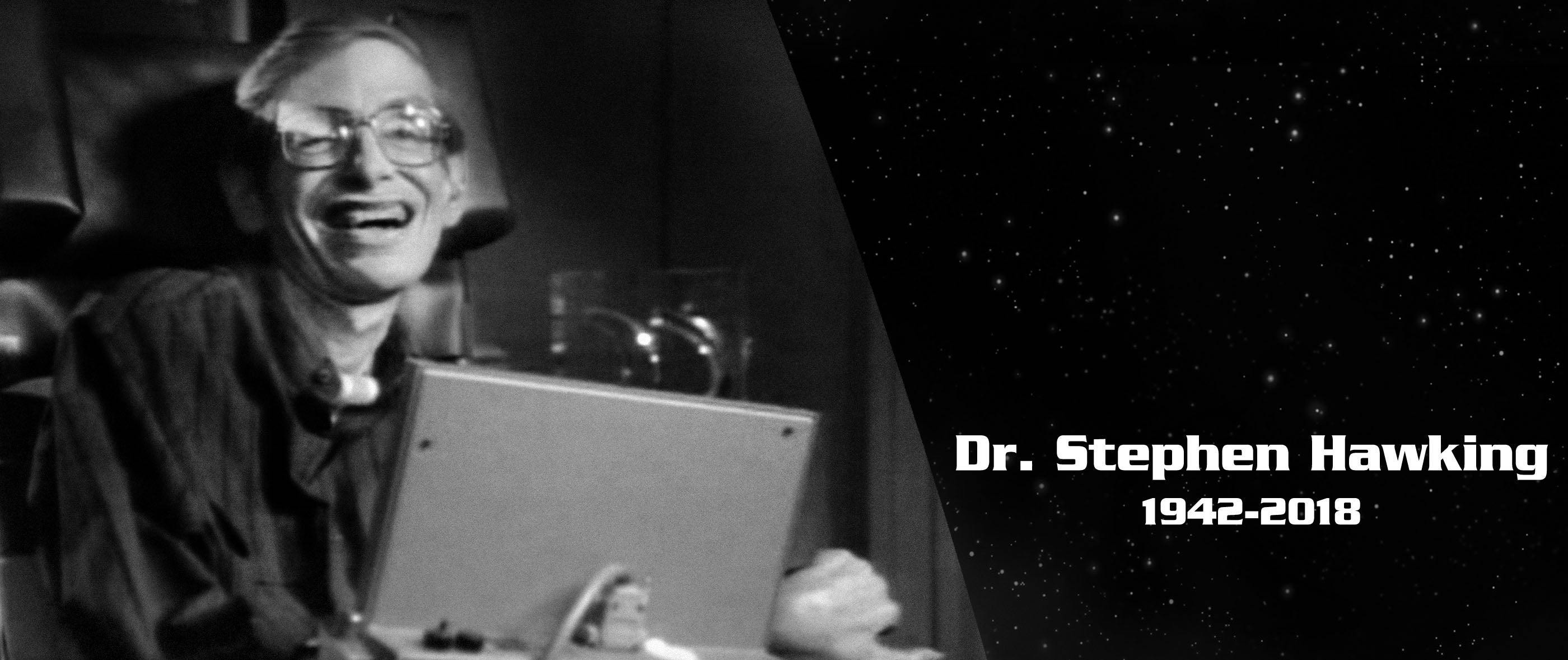
StarTrek.com is saddened to report the passing of Dr. Stephen Hawking, one of the world’s greatest scientific minds and, yes, a Star Trek guest star who appeared as himself in the “Descent, Part 1” episode of Star Trek: The Next Generation. According to his family, he died peacefully this morning at his home in Cambridge at the age of 76.
A ground-breaking physicist and champion of the rights and potential of those with disabilities everywhere, Dr. Hawking was stricken in his early 20s by a progressive motor neurone disease that is related to amyotrophic lateral sclerosis (ALS), or Lou Gehrig’s disease. He nonetheless completed his research and degree work in theoretical physics and cosmology, then shot to fame with his groundbreaking 1988 bestseller of lay-readable cosmology and quantum science, A Brief History of Time, and several follow-ups.
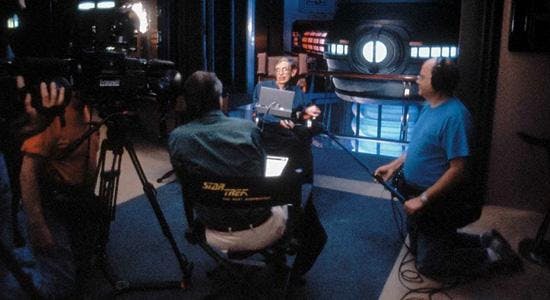
A longtime Trek fan, Dr. Hawking planted the idea for his scene after visiting Paramount to shoot a promotional film for his book, which went before the camera on the Enterprise-D’s engineering and warp core set. While on a tour of the other TNG sets, he asked to be taken from his wheelchair — a rare request — in order to sit in the captain’s chair and, as relayed through host Leonard Nimoy, wondered if there was any way he could appear on the show. The search was on for a “profound” scene for him when executive producer Michael Piller suggested the innocent premise of a poker game.
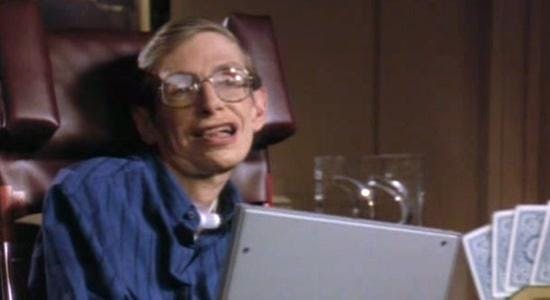
And so it came to pass that Data (Brent Spiner) played poker with Dr. Hawking, Albert Einstein and Sir Isaac Newton. Beyond his on-screen appearance, TNG fans could hear references to a shuttlecraft called the Hawking on more than one occasion.
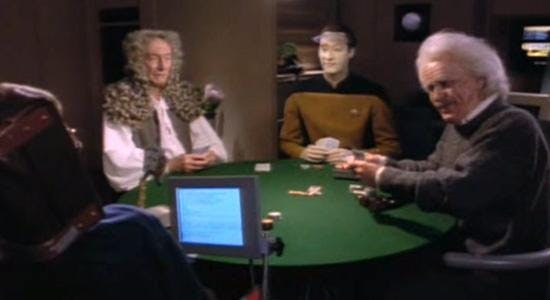
And, in the alternate future that played out in the series finale “All Good Things...,” it was revealed that Data holds the Lucasian Chair of mathematics at Cambridge University. Dr. Hawking held from 1979 to 2009. Sir Isaac Newton, Hawking and Data's holographic poker oponent, held the position from 1669 to 1702. Dr. Hawking later visited the set of Deep Space Nine, during production on “The House of Quark.”
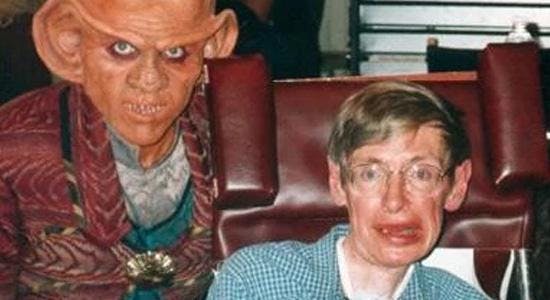
The Lucasian Professor of Mathematics at Cambridge for 30 years, Dr. Hawking was born in 1942 at Oxford to escape the "blitz" in wartime London, then moved back and grew up there, enjoying horseback riding and coxing a rowing team until his ALS began rapid onset in college. Early diagnoses predicted only 2 or 3 years to live. He later became completely paralyzed, requiring the trademark voice synthesizer that allowed him to speak. The technology evolved over the years, but he retained the original, familiar voice.
At his 65th birthday in 2007, Dr. Hawking announced plans to fly weightless on a Virgin Atlantic high-altitude plane three months later, and he did so, a first for a quadriplegic. The weightless event allowed his paralyzed body to move for the first time in 40 years. He remained at Cambridge as director of research at the Centre for Theoretical Cosmology and counted the U.S. Presidential Medal of Freedom in 2009 among many medals and awards he collected from around the world. Dr. Hawking also appeared on The Simpsons, Futurama and on The Big Bang Theory, and was the subject of a telemovie, Hawking, in which he was portrayed by future Star Trek Into Darkness star Benedict Cumberbatch, and the award-winning feature film, The Theory of Everything.
His children, Lucy, Robert and Tim released a statement today that read, "We are deeply saddened that our beloved father passed away today. He was a great scientist and an extraordinary man whose work and legacy will live on for many years… He once said, ‘It would not be much of a universe if it wasn't home to the people you love.' We will miss him forever."
RememberingHawking, TNG Executive Producer, Rick Berman, shared a memorable behind-the-scenes photo on Twitter:
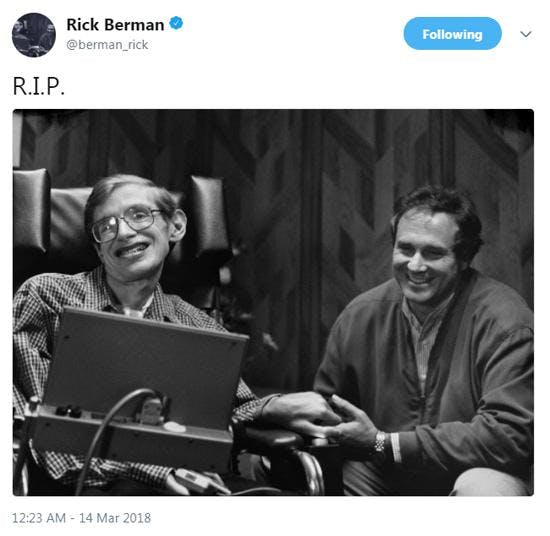
Please join StarTrek.com in offering our condolences to Dr. Hawking’s family, friends, colleagues and many fans all over the galaxy.

